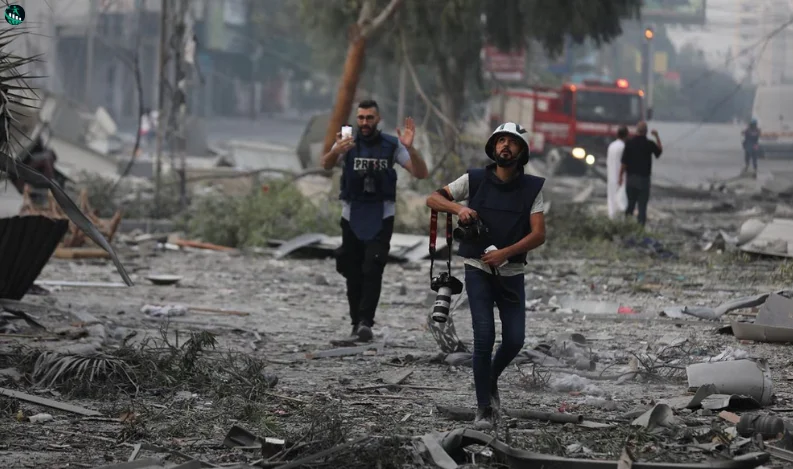
Palestinian Journalist Shares Heartbreaking and Resilient Stories of Gaza War
Sharjah : Palestinian journalist Plestia Al Aqad delivered an emotional account of her experiences covering the war in Gaza during the Sharjah Entrepreneurship Festival 2025. She spoke about the immense loss, the human resilience amid destruction, and the untold stories that rarely reach global headlines.
Al Aqad highlighted the devastating impact of the war, recalling how many of the people and places she reported on no longer exist.
The Weight of Loss
“It is hard to answer a question about Gaza now. Knowing that all the places we talk about are bombed and gone. Most of the people that I talk about are gone forever,” she said, describing the heavy emotional toll of her work.
More than 47,400 Palestinians were killed and over 111,000 wounded in the Gaza war that began on October 7, 2023. After a ceasefire went into effect last month, many displaced Palestinians attempted to return to what was left of their homes.
‘We Are Not Born to Die’
Al Aqad shared the heartbreaking story of a young girl who lost both her legs and hands in a bombing.
“I met her in a hospital. She didn’t want her photo to be published. ‘That is not me and that is not how I want to see myself and the world,’ the little girl told me.”
The journalist stressed that Palestinians have dreams and aspirations like anyone else. “Just like everyone else, we are not born to die. We didn’t choose this life.”
The Human Spirit Amidst War
Despite the devastation, Al Aqad also highlighted moments of resilience and generosity.
She described a young Palestinian boy who had lost both parents yet continued to spread kindness by wearing a ‘happy birthday’ cap and distributing biscuits to others fleeing from North to South Gaza.
“In the middle of a genocide, people were still generous,” she noted.
She also recounted the story of an elderly woman who evacuated Gaza with her pet birds and turtles, refusing to abandon them even in the face of war.
Realizing the Reality of War
Al Aqad, who initially set out to tell human-interest stories, found herself suddenly reporting on a war zone. She recalled how schools transformed into shelters and how student backpacks carried not books, but their last belongings or even limbs of their siblings lost to airstrikes.
Growing up, she often thought her grandfather exaggerated about Israel’s atrocities.
“When I grew up and saw the Israeli genocide in October, I realized that my grandfather was not exaggerating at all,” she said. Coming from a family that has experienced displacement, she remarked, “People ask me where I live—I am everywhere. I don’t live anywhere.”
Struggles with Basic Necessities
Al Aqad also shared the challenges of surviving in Gaza, particularly food and water scarcity. She recalled how she once hesitated to eat fruit without washing it but was told that drinking water could not be wasted on washing food.
“Now I don’t mind eating fruits without washing,” she said with a smile, highlighting the dire conditions faced by Palestinians.
Despite the trauma, Al Aqad spoke of the warmth of the people. “While I was out covering stories, random people would come up to me, appreciate my work, and offer food. This shows the generosity of the people of Palestine.”
Her testimony sheds light on the untold stories of the Gaza war, emphasizing both the suffering and strength of those living through it.



Recent Comments: